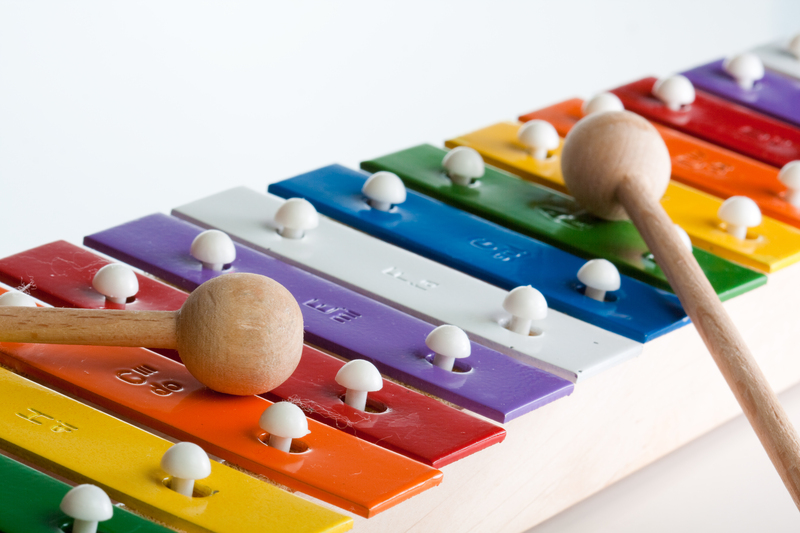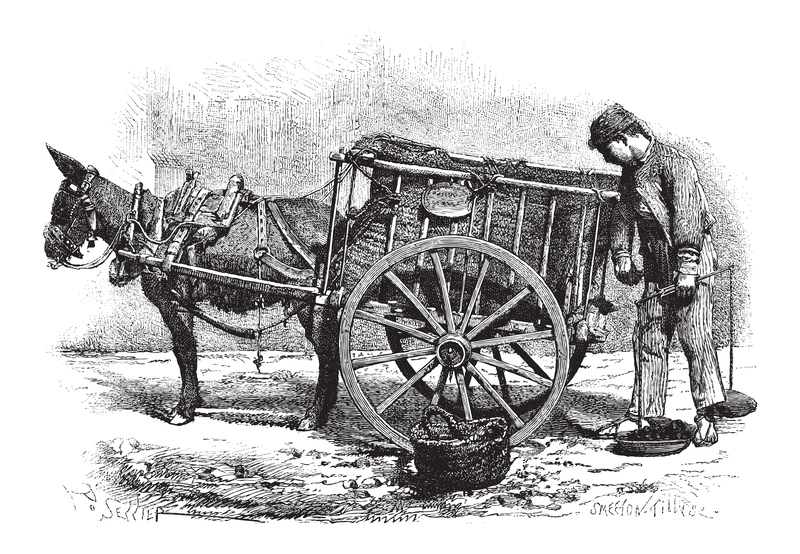Creating Serenity: Clutter Removal and Hoarder Clean Up Made Easy
If you're overwhelmed by disorganization or untidiness at home, you're not alone. Clutter and hoarding can weigh heavily on mental, emotional, and even physical health. But the process of decluttering and hoarder clean up doesn't have to be stressful. By understanding the psychology behind clutter, embracing practical strategies, and knowing when to ask for help, anyone can reclaim their space--and serenity.

Understanding Clutter and Hoarding
What Is Clutter?
Clutter refers to items that are disorganized, unused, or simply accumulating with no real purpose. Clutter sneaks up on all of us--from junk drawers to overstuffed closets. While a little clutter is normal, ongoing accumulation can become problematic.
Distinguishing Hoarding from Everyday Mess
Hoarding differs from ordinary clutter. It's a recognized disorder, involving persistent difficulty discarding possessions (regardless of value) and significant distress when attempting to do so. Hoarding often leads to unsafe living environments and can deeply impact daily life. Recognizing when clutter is turning into hoarding is critical for timely and effective clean up.
- Clutter: Manageable mess, can be sorted and removed without high distress.
- Hoarding: Excessive accumulation, significant emotional attachment, stress or anxiety about discarding items.
Why Clutter Removal Matters
Removing clutter isn't just about aesthetics. It profoundly affects well-being:
- Mental Health: Clutter contributes to stress, anxiety, and overwhelm.
- Physical Health: Dust, pests, and tripping hazards increase with clutter or hoarded items.
- Productivity: Organized spaces boost efficiency and focus.
- Safety: Clutter blocks exits, impedes mobility, and can even become a fire hazard.
Serenity starts at home. Creating a calm, functional space is crucial for overall peace of mind.
Step-by-Step Guide to Clutter Removal
1. Set Your Intention
Before embarking on your clutter removal journey, clearly outline your goals. Ask yourself:
- What areas cause me the most stress?
- What do I want to use my space for?
- How do I picture a tidy home?
2. Gather Supplies
Good tools make the job easier. You'll need:
- Heavy-duty trash bags and boxes
- Protective gloves and masks (especially for hoarder clean up)
- Cleaning supplies: disinfectant, wipes, brooms, mops
- Labels or markers for sorting
- Storage containers or bins
3. Start Small
Don't try to tackle an entire house at once. Begin with a single room, a closet, or even one drawer. This helps build momentum and avoids overwhelm. Celebrate each small victory: serenity is built step by step.
4. The Four-Box Method
A classic approach to decluttering is the Four-Box Method:
- Keep: Items you use regularly or cherish
- Donate: Usable things others might need
- Toss: Broken, expired, or unusable items
- Store: Seasonal decor, out-of-season clothing, or archives
Move through each area with these boxes, making quick decisions. The less time you spend agonizing, the faster the clutter removal process.
5. Clean As You Go
Once a space is emptied, clean it thoroughly--vacuum, wipe, disinfect. You'll be more motivated to maintain order in a fresh, clean spot.
6. Organize What's Left
Everything you choose to keep should have a home. Use containers, drawer dividers, and labels. Store items logically: keep frequently-used things easily accessible.
- Vertical storage: Shelves save space and create order.
- Hidden bins: Baskets or boxes under beds or inside closets.
- Clear containers: See contents at a glance.
Remember, organization is ongoing. Periodically revisit your system and adjust as needs change.
Hoarder Clean Up: A Special Challenge
The Psychology of Hoarding
Dealing with hoarding requires empathy and understanding. Hoarders often feel deep emotional connections to their belongings--sometimes stemming from trauma, anxiety, or other mental health conditions. For them, discarding possessions can trigger distress, guilt, or even panic.
Effective hoarder clean up means working at a respectful pace, with compassion and patience.
Signs It's Time for Professional Help
- Severe accumulation blocking exits, bathrooms, or kitchens
- Presence of mold, pests, or hazardous wastes
- Relationships strained due to clutter or hoarding
- Legal citations or landlord concerns
In these cases, bringing in qualified hoarder clean up specialists or therapists ensures safety and emotional support.
How Professional Hoarder Cleaners Work
- Assessment: Evaluate the scope, tailor a plan
- Sorting: Separate valuables from trash
- Cleaning: Remove hazards, deep clean the space
- Organization: Help owners find new storage systems
- Aftercare: Recommend ongoing support to maintain order
Hiring compassionate, non-judgmental professionals makes the hoarder clean up process less intimidating and more manageable.
Top Decluttering Tips from the Pros
- Set a timer: Work in 15-30 minute bursts. Avoid burnout.
- Stay objective: Ask: Have I used this in the past year?
- Photograph prized items: If you can't keep it, keeping the memory helps.
- Reward yourself: Celebrate milestones--new furniture piece, favorite meal, or a day off.
- Ask for support: Friends or family make it easier and more fun.
Maintaining a Clutter-Free Home
Adopt Sustainable Habits
- "One In, One Out" Rule: For every new item, let one go.
- Monthly Mini-De-Clutters: Spend a few minutes reviewing common clutter hotspots.
- Regular Donations: Get into the habit of regularly donating usable belongings.
- Mail Control: Sort and recycle junk mail immediately.
Create Calming Spaces
Your home should be a sanctuary. After cleaning up, enhance serenity with:
- Soothing colors: Subtle hues promote relaxation.
- Minimal decor: Avoid overcrowding shelves or counters.
- Greenery: Houseplants improve air quality and bring life to rooms.
- Natural light: Open curtains or blinds for brighter, happier rooms.
When to Call for Ongoing Help
Even after a major clutter removal or hoarder clean up, it's normal to need help staying organized. Professional organizers or regular cleaning services can help maintain a sense of peace and ensure your home remains a haven.
Frequently Asked Questions (FAQs) About Clutter Removal and Hoarder Clean Up
How do I motivate myself to start decluttering?
Start by envisioning the benefits--peace, order, and serenity in your daily life. Break tasks into tiny steps and reward yourself for progress. If motivation is tough, invite a supportive friend or family member to help.
What should I do with sentimental items?
Choose only your most meaningful keepsakes to display or properly store the rest. Consider taking photos of items you can't keep but want to remember.
How long does hoarder clean up take?
It varies depending on the severity, size of the home, and emotional readiness. While a small apartment may take a few days, a large home with extreme hoarding can require weeks--especially if professional intervention is needed.
Can I handle hoarder clean up on my own?
For severe cases, it's strongly advised to consult professionals--especially when health and safety risks are involved. Hoarding disorder usually benefits from a team approach, including therapists for emotional support.

The Benefits of a Clutter-Free, Serene Home
Reclaiming your space through clutter removal and addressing hoarder clean up has widespread benefits:
- Improved mood: Less stress, anxiety, and a greater sense of accomplishment.
- Enhanced safety: Prevent tripping hazards, mold, and hazards for children or elderly family members.
- Boosted productivity: Work, hobbies, or daily routines become more efficient.
- Better relationships: Hosting guests becomes easier when your home is organized and inviting.
Serenity is an ongoing practice. Clutter will try to creep back, but consistent, mindful habits--and reaching out when you need assistance--make it possible to maintain the peace you deserve.
Conclusion: Your Journey to Serenity Begins Now
Creating serenity through clutter removal and hoarder clean up isn't just about cleaning--it's about transforming your environment and, in turn, your life. Whether you're facing everyday mess or the deeper challenge of hoarding disorder, you're taking the first step towards reclaiming well-being, productivity, and peace.
Ready to start? Pick one small space. Sort what you keep, clear what you don't, and envision the tranquil retreat your home can become. If overwhelmed, professional help ensures safety and support. Remember: serenity is just a decision away!
Key Steps for Effective Clutter Removal & Hoarder Clean Up
- Start small to avoid overwhelm
- Use proven organizing methods like the Four-Box or KonMari approach
- Clean and organize as you go
- Maintain order with sustainable daily habits
- Seek help if you're facing emotional or physical barriers
Your serene, clutter-free home awaits. Take the first step today--create the peace of mind and serenity you deserve!